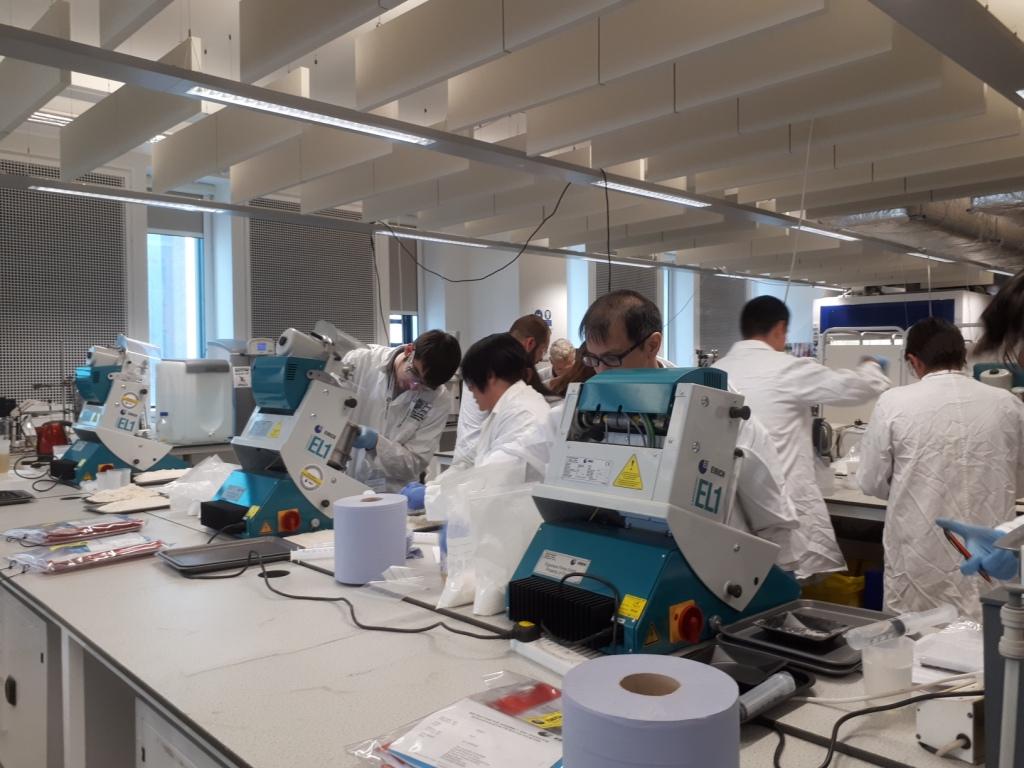29.07.2019
Mixing granulators at University of Sheffield
Maschinenfabrik Gustav Eirich, Hardheim, Germany, states that very few research establishments and universities in Europe offer in-depth expertise in granulation technology. However, every year Germany’s Fraunhofer Institute for Ceramic Technologies and Systems (IKTS) in Dresden offers basic and advanced courses for customers in the ceramics industry. In the UK the University of Sheffield stages the International Granulation Workshop every second year, which consists of a two-day granulation course followed by a three-day granulation conference. The event used to be targeted at the food and pharmaceutical industries, but it now extends to all industries. The workshop was held for the ninth time on 8-10 July 2019. As is the case at IKTS in Dresden, EIRICH mixers are part of the programme in Sheffield.
Thermal processing and mechanical processing are the two options currently available for producing granulate. The high cost of energy consumed in thermal granulation is becoming an increasingly serious problem in many industries, so companies are searching for alternatives such as pressure agglomeration, extrusion and tumble-growth agglomeration. (Roll) pressure agglomeration and extrusion (using perforated roller presses) generally do not produce round fine-grain granulate and an upstream mixing step is needed for both techniques. In contrast, mixing and granulation can take place in a single tumble-growth process using an EIRICH mixer.
EIRICH mixing granulators with capacities between one and 3000 litres have only a single rotor tool. Larger machines have two. There is no need for the high-speed, high-wear choppers which are installed on ploughshare mixers. Depending on the application, the rotor can run at speeds above 30m/s. This makes it possible to generate high shear forces and quickly distribute fluids. In a hybrid mixing process, the speed can vary depending on whether wet or drying mixing takes place prior to granulation. By running the process with different tools and at different speeds, grain size can be regulated over a wide range.
EIRICH mixers are used as mixing granulators in a wide range of industries. The investment is relatively modest and the machines are said to require little maintenance. The company is willing to help users identify the cheapest/best operating conditions for the granulation process. Feasibility studies using customer materials can be carried out throughout the year at the test centre in Hardheim and at the group’s sites around the world. For further informaton contact Thomas Lansdorf (thomas.lansdorf@eirich.de). www.eirich.com

EIRICH mixing granulators being employed during the University of Sheffield’s two-day specialist course
« Back
|